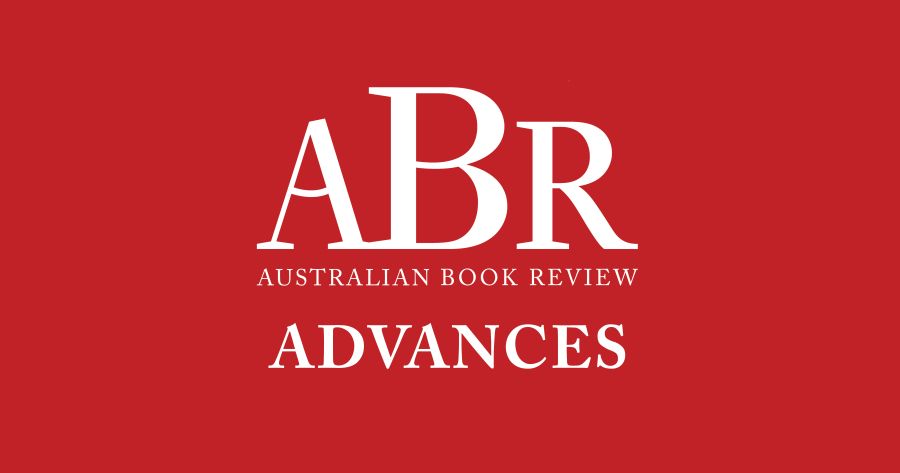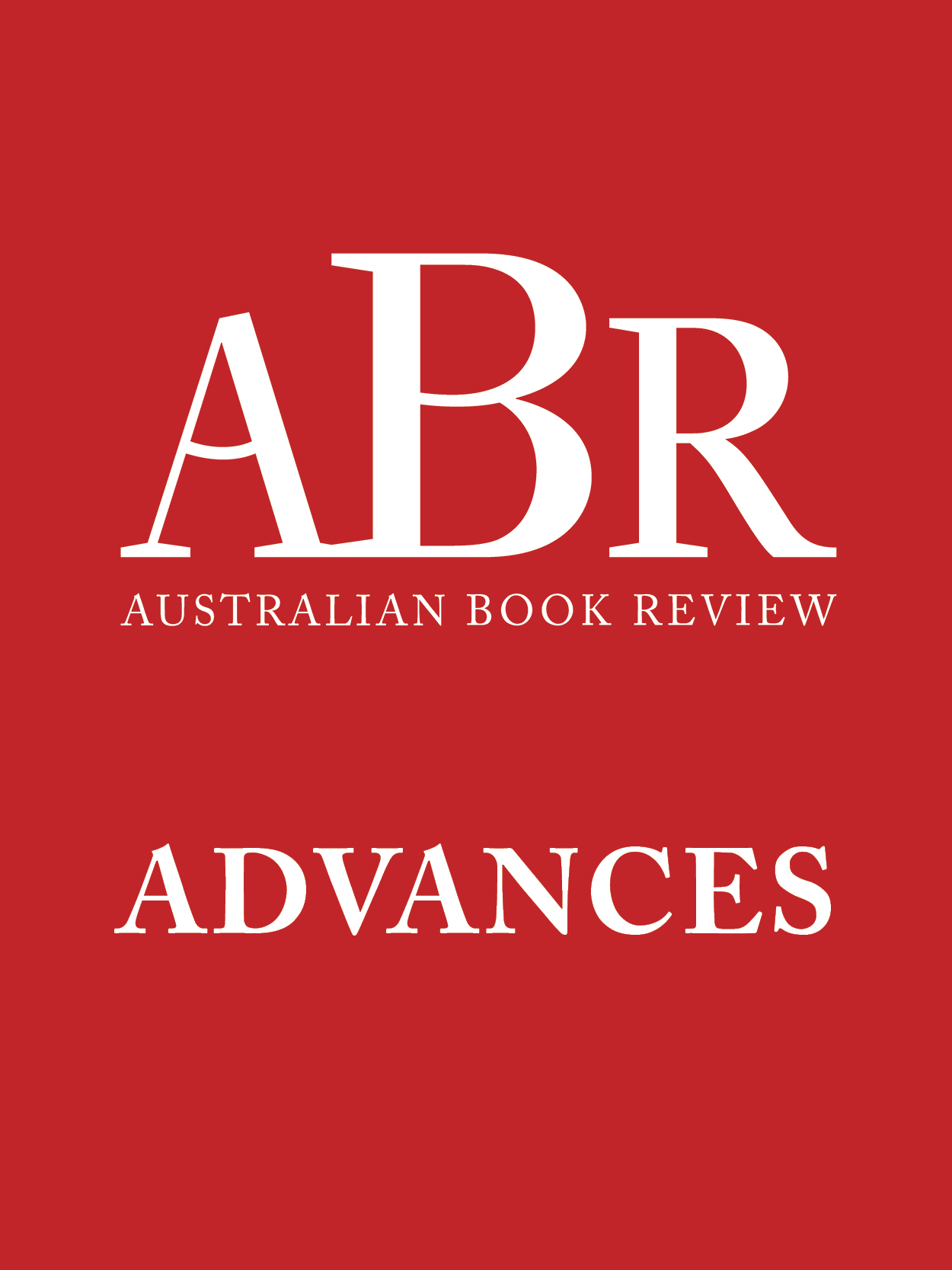
- Free Article: No
- Contents Category: Advances
- Review Article: No
- Article Title: Advances – August 2025
- Online Only: No
- Custom Highlight Text:
This year’s ABR Elizabeth Jolley Short Story Prize attracted 1275 entries. There was a strong representation from Australia though Jolley continues to grow in international stature, with entries coming from thirty-five countries. The Jolley Prize is one of the world’s most lucrative prizes for an unpublished story in English.
- Featured Image (400px * 250px):

- Alt Tag (Featured Image): Advances – August 2025
The judges have now selected the winning, second- and third-placed stories, and it’s our great pleasure to publish them in this issue:
‘Shelling’ by Tara Sharman (Vic.)
‘Sediment’ by Tracey Slaughter (New Zealand)
‘Limerence’ by Rachael Wenona Guy (Vic.)
Tara Sharman, at twenty-two years old, becomes the youngest winner of an ABR prize. She was placed equal first in the Young Tasmanian Writers contest in 2020 and is now studying in Melbourne. Readers will recognise New Zealand writer Tracey Slaughter, winner of the 2024 Calibre Essay Prize and runner-up for the 2018 Peter Porter Poetry Prize. Slaughter is now in a category of her own as the first person to be shortlisted in all three ABR prizes. Rachael Wenona Guy’s story, which the judges awarded third place, is enhanced by her own illustrations. See our website for the judges’ full report and Tara Sharman’s response.
The Jolley Prize is worth a total of $12,500. It would simply not be possible to offer the prize in such a form, generating so much creative activity, without the support of Ian Dickson AM, who has generously supported this prize since its creation in 2011.
New ABR Poetry and Arts Editors
Advances is delighted to announce the appointment of two new editorial staff: Poetry Editor Felicity Plunkett and Arts Editor Ben Brooker. Both longstanding and popular ABR critics, Plunkett and Brooker bring knowledge, expertise, and a decades-long commitment to the arts and literature. Plunkett and Brooker will work closely with the ABR team to ensure quality arts criticism and poetry remains central to the magazine.
The ABR Arts Editor is a new role and marks ABR’s commitment to arts criticism at a moment when many publications are retreating from quality longform engagement with the arts. Here, ABR once again acknowledges the extraordinary generosity of Ian Dickson AM who has helped establish the position of ABR Arts Editor.
ABR has been for many years enriched by the contributions of outgoing Poetry Editor Dr John Hawke, who in recent years has been assisted by poet Anders Villani. Advances sincerely thanks John and Anders.
Writing Australia launched
Creative Australia has now established Writing Australia with a council of distinguished literary professionals, including ABR’s Chair, Professor Sarah Holland-Batt. Writing Australia was a recommendation of Revive, the federal government’s 2023 national cultural policy. It is tasked with supporting and promoting the Australian literature sector and the development of markets and audiences for Australian literature. Writing Australia will oversee the appointment of an Australian Poet Laureate, who will join another first-ever laureate in Commonwealth Poet Laureate Selina Tusitala Marsh, appointed last month.
Sarah Holland-Batt has described the establishment of a Poet Laureate as a way to ‘naturalise poetry’s presence in ordinary spaces, and give Australian writing an important presence on the world stage – as well as a prominent advocate at home’.
The end of the Australian National Dictionary Centre?
In less happy news, Advances was astonished and saddened to learn that the Australian National University has proposed the abolition of the Australian National Dictionary Centre (ANDC) – to save $250,000 annually – and to reduce the capacity of the National Centre for Biography, which maintains the Australian Dictionary of Biography. As we go to press, former ANU Chancellor Gareth Evans AC has underlined ‘ANU’s very distinctive national mission’ which these centres fulfil by ‘improving Australia’s understanding of itself’.
The ANDC undertakes a range of tasks – as detailed by ANDC Director Amanda Laugesen and Professor Frank Bongiorno on page 17 – including maintaining the Australian Concise Oxford Dictionary (ACOD), ABR’s lexical bible. If we cannot understand ourselves – nurture what is best about us, evaluate what is not – we can hardly hope to cultivate a richer culture and society.
ABR farewells Christopher Menz
Finally, it is with a heavy heart that ABR farewells and most sincerely thanks Development Consultant extraordinaire Christopher Menz, who is leaving ABR in August after more than a decade in the role. Christopher, a former Director of the Art Gallery of South Australia, brought to ABR and the Australian literary magazine sector a new take on private philanthropy. He helped ABR and its readers see that cultural creativity and criticism is necessarily a shared enterprise.
Long-time friends of ABR have told Advances that Christopher was ‘always inclusive’ and made patrons feel ‘involved and relevant’ in ABR’s issues, prizes, fellowships, and events. Christopher’s impact at ABR has been immeasurable – and will endure. On a personal note, Advances would like to thank Christopher on behalf of the entire ABR community for his warmth, good humour, and incisive contributions as conversant, host, and writer. See From the Archive on page 64 for one example and to Christopher: Salute! (Yes, it’s in ACOD.)



Comments powered by CComment